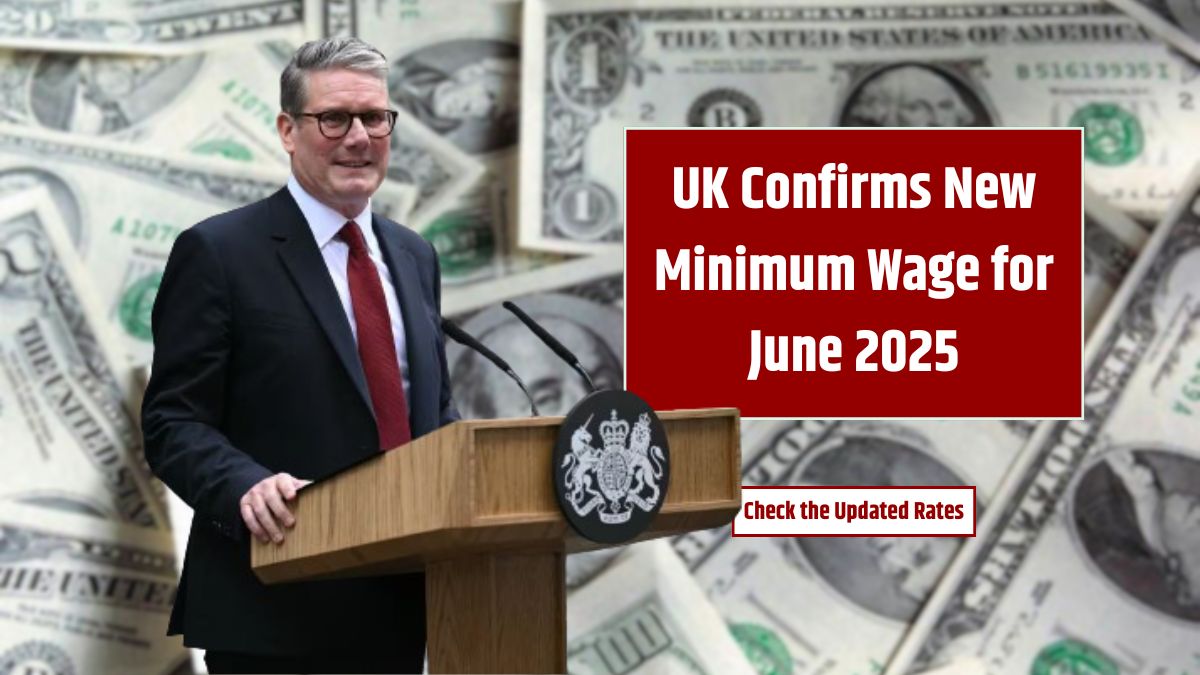The UK government has confirmed a new national minimum wage structure that will come into effect in June 2025. This decision, shaped by advice from the Low Pay Commission, is a direct response to rising living costs and growing wage inequality. Millions of workers across sectors like retail, hospitality, social care, and food service will be impacted, particularly those in lower-paid roles.
Let’s break down what’s changing, who benefits, and what it means for both employees and employers.
Table of Contents
Overview
The push for a fairer wage system is part of the government’s broader vision of creating a high-wage, high-skill, and high-productivity economy. With inflation, soaring energy bills, and increasing rent and grocery prices continuing to strain household budgets, this wage update aims to ease that pressure for working families.
The new wage rates aim to improve financial security, close the pay gap across age groups, and provide a stepping stone toward long-term economic stability.
Here’s a quick summary:
| Topic | Details |
|---|---|
| Implementation Date | June 2025 |
| Eligibility for National Living Wage | Workers aged 21 and over |
| Highest Raise | Apprentices: 8.6% increase |
| 2026 Target | Two-thirds of median earnings for NLW |
| Enforcement Authority | HMRC, for Department for Business & Trade |
| Main Objective | Reduce in-work poverty and improve productivity |
Breakdown
Here’s how the new minimum wage rates compare to the 2024 levels:
| Category | 2024 Rate | June 2025 Rate | Increase (%) |
|---|---|---|---|
| National Living Wage (21+) | £11.44 | £11.95 | 4.5% |
| 18–20 Year Olds | £8.60 | £9.15 | 6.4% |
| 16–17 Year Olds | £6.40 | £6.90 | 7.8% |
| Apprentices | £6.40 | £6.95 | 8.6% |
| Accommodation Offset (daily) | £9.99 | £10.50 | 5.1% |
A key change to note: the National Living Wage will now apply to workers aged 21 and over, instead of the previous threshold of 23 and above. This expands eligibility and brings younger workers into the fold sooner.
Benefits
The new wage structure means a lot more than just a bigger paycheck. It represents a move toward more financial independence and less reliance on state support.
Workers can expect:
- Higher annual income: Depending on hours worked, some could earn £600–£1,000 more per year.
- Easier budgeting: With more money coming in, workers can better cover essentials like rent, food, and transportation.
- Improved financial stability: Having a safety net for emergencies, debt payments, or savings becomes more achievable.
- Reduced wage gaps: Younger workers and apprentices see the biggest percentage increases, helping close the earnings divide.
Employers
For employers, the message is clear: prepare now. Companies must adopt the new rates from June 2025 to remain compliant. Failure to do so could lead to legal consequences and fines issued by HMRC.
Here are key steps employers should take:
- Update payroll systems to include the new wage rates
- Adjust contracts where necessary to reflect updated terms
- Review budgets to prepare for higher wage costs
- Inform employees clearly to avoid confusion or resentment
Although some small businesses may feel initial pressure, increased pay often leads to better employee performance, lower turnover, and a stronger workplace culture in the long run.
Outlook
This isn’t just a reactive measure—it’s a step toward a stronger, more equal workforce. As inflation eats into real incomes, wage increases are one of the most direct tools to protect vulnerable groups. The revised minimum wage structure is designed to help working individuals not just get by, but begin building a more stable future.
For workers, this means fewer money worries and more control over their financial lives. For businesses, it’s a reminder that paying fair wages isn’t just a moral decision—it’s a smart one that can boost loyalty and efficiency.
FAQs
When does the new wage take effect?
June 2025 is the official start date for the new minimum wage.
Who qualifies for National Living Wage?
Workers aged 21 and older will qualify starting June 2025.
Which group gets the biggest raise?
Apprentices, with an 8.6% increase in hourly pay.
How will employers be held accountable?
HMRC will enforce compliance on behalf of the government.
Can this help with cost of living?
Yes, the increase is aimed at easing financial stress for workers.






















